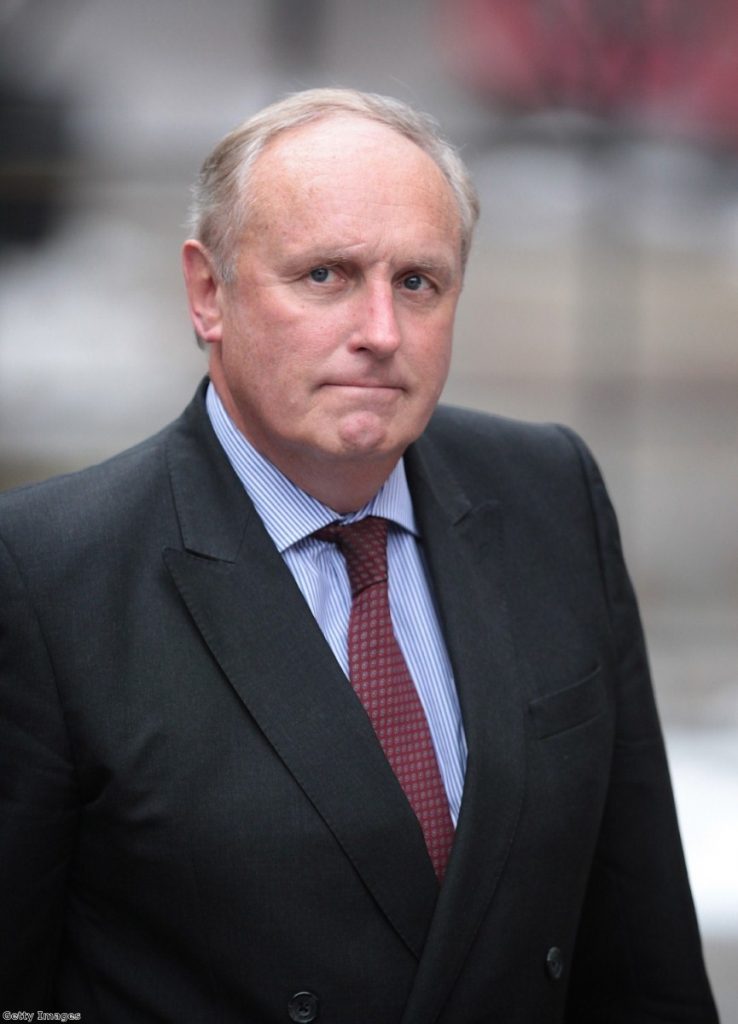Newspaper editors promise ‘swift’ reform
Newspaper editors have committed to work together to "swiftly" find a solution which meets the Leveson principles of self-regulation, after their Downing Street meeting this morning.
The editors were unanimous in their agreement that they needed to bring back "toughened proposals" to the government soon, a statement from the Department for Culture, Media and Sport (DCMS) said.
Calls for a statutory underpinning of press self-regulation as recommended by Lord Justice Leveson last week are growing in intensity.
But Cameron and culture secretary Maria Miller, who chaired this morning's meeting, remain deeply concerned at the long-term impact such a move could have on Britain's free press.


"The culture secretary was clear that the onus is on the industry to take responsibility for delivering a credible solution on press regulation, and to do so quickly," the DCMS said.
"It is not for the government to find solutions or act as an arbitrator."
Most editors have accepted the need for a change to the status quo, but it had been feared that some – notably Mail editor Paul Dacre – might oppose any change to existing arrangements.
Most editors have accepted the need for a change to the status quo, but it had been feared that some – notably Mail editor Paul Dacre – might try to stick to the Lord Black proposals which Leveson specifically rejected.
Despite their grave freedom of speech concerns, Miller repeated the government's threat to legislate if newspaper chiefs do not make further big concessions.
"The culture secretary is clear that, while the meeting was a good starting point, there is still a huge amount of work for the industry to do, and it must not drag its feet," the DCMS statement added.
"She is clear that, while she has very grave concerns about legislation, if the industry fails to deliver then it will be the only option left."
A legally binding contractual membership option to the new regulator could bypass the need for new legislation altogether, it has been suggested.
Earlier, Lord Hunt, the chairman of the Press Complaints Commission who also attended today's meeting, said 120 publishers representing 2,000 editors were prepared to back Leveson's proposals in full.
Public opinion appears to be hardening in favour of implementing Lord Justice Leveson's recommendations. A petition to that effect now has over 130,000 signatures.
Views in parliament appeared to be softening yesterday, however, as a debate on the issue saw key supporters of statutory regulation like David Blunkett adjust their positions.
Tory backbenchers who had backed statutory regulation also indicated they now believed there was no need for legislation.
Miller began yesterday's debate by once again laying out the concerns of Conservatives in the government that Britain's freedom of speech could be undermined by any kind of law on press regulation.
"There are many in the House today on both sides of the chamber who have a deep seated and grave concern that such legislation could have a profound effect on our ability to completely safeguard the freedom of our press in the future," she told MPs.
"Who can say what amendments could be made to such a legislative framework in the future? Who can make promises for the politicians and the political parties in years to come?
"The action that we take will have consequences that will be felt for generations to come and we must make sure that whatever action we take, it is not just for now but it's for the coming years as well."
Therese Coffey, one of the more outspoken Conservative MPs on the issue of freedom of speech, tweeted this morning: "Tearoom crisis this morning as no newspapers have been delivered. Fleet St revenge for yesterday's debate?"
Cross-party talks are also set to continue, with both sides now drawing up draft legislation to demonstrate Leveson's proposals are workable – or not.

